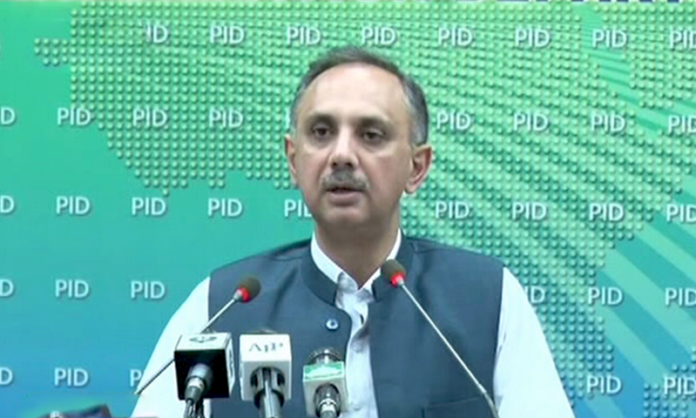Power Division Minister Omar Ayub Khan on Monday stressed the need for careful utilization of water as water storage capacity was fast depleting.
The minister said investment in water resources would help enhance the country’s GDP by one per cent. Unfortunately, he added, no work was carried out on the construction of dams after Tarbela and Mangla.
“The government is actively working on a plan to harness water resources in the country in order to add 18,000-20,000MW hydel power to the system,” he said. Currently, the country’s total installed capacity stands at over 31,000MW and it will be enhanced to 55,000MW by 2030.”
Omar Ayub said floating solar panels were being installed at Tarbela, Mangla, Ghazi Barotha and Khanpur reservoirs as well as along canals. this would not only help reduce water evaporation but also generate electricity, he added.
The minister said as many as 8,000MW electricity clean renewable energy (RE) would be added to the system by 2025 and 20,000MW till 2030.
He lamented that the past government of PML-N had shelved RE project only to pave way for setting up expensive R-LNG power projects.
Speaking on the occasion, Chief Meteorologist Muhammad Riaz Ahmed said climatic changes have a deep impact over water resources in Pakistan. He expressed fear that a rise in temperature could aggravate water crisis in future.
He said construction of more water reservoirs was the need of the hour to meet the country’s future water demand.
Later, while taking to media, the minister said RE draft policy was framed unanimously after consultation of all provinces.
He said the Sindh energy secretary supported the RE draft policy during Alternative Energy Development Board (AEDB) meeting, adding that the cabinet has also approved the RE policy 2019 and now it would come in Council of Common Interest (CCI).
“The policy aims to reduce electricity prices in the country,” he said.
Replying to another question, the minister said the circular debt was around Rs850 billion and that its flow has been reduced to Rs10-11 billion from Rs39 billion per month.
He hoped that the circular debt would be zero by December 2020.

























The idea of floating solar panels is appreciable.
The minister lamented, “Unfortunately no work was carried out on the construction of dams after Tarbela and Mangla.”
Actually politicians were not aware of beneficial effects of building dams therefore they let the construction of Mangla and Tarbela.